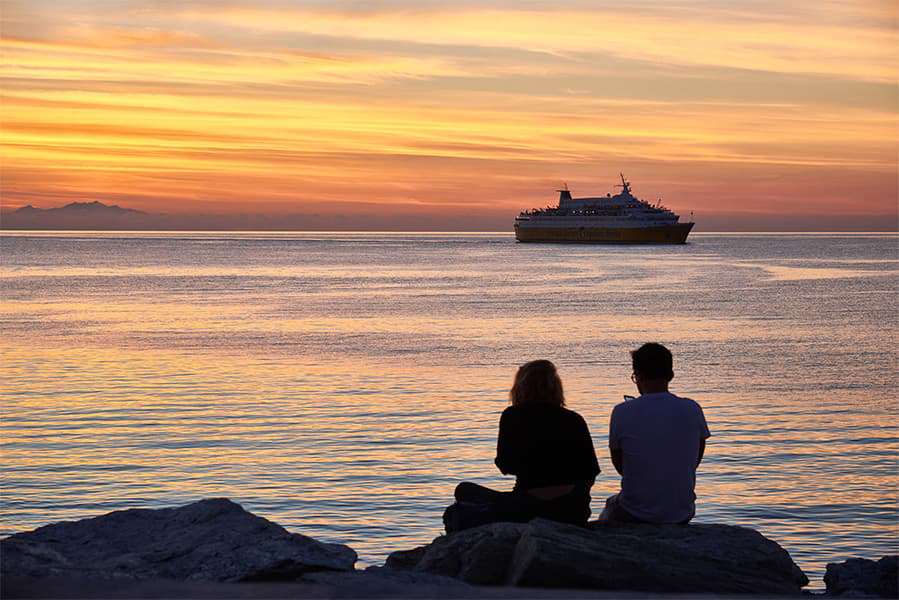Klaipeda - Rostock
Ferries to Germany
Klaipeda - Rostock
Ferries to Germany

Find Klaipeda Rostock ferry prices, view timetables and deals with directferries.com as well as comparing with other crossings from Lithuania or to Germany to guarantee you save on the ticket price.
View timetables and prices of all Klaipeda to Rostock ferries ensuring you get the best price available for your ferry crossing. If there is an alternative route available that may enable you to save more then we’ll give you the price for that too.
Simply select the country of departure and then Klaipeda Rostock or another route if you prefer followed by number of passengers travelling on the ferry and hit search!
More routes than anyone else.

Compare fares, times & routes in one place.
Change plans easily with flexi tickets.

Book e-tickets & manage trips in-app.
Live ship tracking & real-time updates.

Top-rated customer support when you need it.
The Port of Klaipeda is the northernmost ice-free port on the eastern coast bordering the Baltic Sea, representing Lithuania as its biggest and busiest port. More than 800 economic agents are directly involved in the operations of Klaipeda Port, and the port itself is a member of five international organisations that dictate important movements in the world of transportation. The port is regarded as one of the primary bases to connect Lithuania with the rest of Eastern Europe, especially the Baltic countries. The World Bank is currently sponsoring movements at the port, with the objectives to prevent spills, improving waste reception facilities and monitoring environmental conditions. The port has recently been making strides in the tourism industry after renovations have transformed it into an attractive seaside city. Over the past decade, cruise shipping has soared in popularity at the marina, with the cruise vessel terminal sitting right in the heart of the city. Numerous services are available to passengers at the port: taxi ranks, an internet café, souvenir shops, bars and restaurants are typically very busy at all times. An additional terminal was added in 2014 in an attempt to improve the city’s competitiveness in cruise shipping and to develop the exponential growth of its tourism industry. The ferry routes coming out of the port are to Kiel in Germany and to Karlshamn in Sweden, both of them relatively long crossings. Facilities on board the vessels are of high quality offering excellent service to passengers.
Rostock is a city in northern Germany located on the Warnow river on the coast of the Baltic Sea. In the 11th century there was a Slavic settlement at the Warnow river called Roztoc (which means broadening of a river); the name Rostock is derived from that designation. The Danish king Valdemar I set the town aflame in 1161. Afterwards the place was settled by German traders. The rise of the city began with its membership in the Hanseatic League. In the 14th century it was a powerful seaport town with 12,000 inhabitants and the biggest city of Mecklenburg. Ships for cruising the Baltic Sea were constructed in Rostock. In 1419 the oldest university in Northern Europe, the University of Rostock, was founded. Large parts of the central city were destroyed in World War II by Allied bombings in 1942 and 1945. Through reconstruction and subsequent extension, the city became a major industrial centre of the German Democratic Republic.